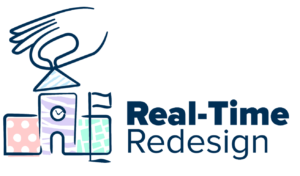Parental Perfection, Reimagined

Bill Jackson
More than ever before, parents in America are facing enormous pressure to be perfect. The spread of social networks has made it easy to observe fellow parents, and instantly feel doubtful or inadequate about one’s own beliefs and direction. Between scheduling well-rounded extracurricular activities, moderating screen time, or enforcing dietary boundaries, it’s not unusual to worry about taking the wrong approach. The same concerned feeling often pops up when parents make decisions regarding their child’s education.
GreatSchools is on a mission to debunk the perfect parent myth, and instead foster the informed parent. Parents and guardians who have access to information, particularly when it comes to a child’s education can make smarter choices as they pave the way for a bright future.
Informed parents are more proactive about getting the facts in an efficient, effective manner. There are three habits of informed parents that we’ve noticed over the years:
Talk regularly with your child’s teacher and principal
Fortunately, new technology now makes it possible for parents to have a direct line with educators. Apps like ClassDojo and Remind facilitate frequent communication between parents and teachers, so everyone can be open about the issues kids might be facing at school.
Ask your child one question about what they learned every day
There’s an important distinction here: don’t just ask them what they learned – go a step further, and ask them to tell you more about the subject, topic, or lesson. More qualitative questions can often prompt more informative answers.
Teach yourself
Recent confusion around Common Core State Standards has been a challenge for millions of informed parents. We created Milestones, a free collection of online videos, to so parents could teach themselves success looks like in in grades K-5. Available in English or Spanish, each short clip shows what students should be able to demonstrate, by the end of the year, in order to achieve grade-level standards in critical skills like reading, writing, and math. They help parents answer the universal question, “Is my child on track in school?”
By keeping these three tactics top of mind, parents are better able to support their children’s learning at home and advocate for their children at school. They can feel more confident in their understanding of where their children stand, and whether they are on track for college. By parenting smarter, not harder, they can be informed, which as it turns out, is much easier than being perfect.
This blog is part of our Smart Parents series in partnership with the Nellie Mae Education Foundation. For more information about the project, see Parents, Tell Your Story: How You Empower Student Learning as well as other blogs:
- 5 Ways Parents Can Encourage 21st Century Learning
- Lessons for Parents on Pink Versus Blue Tech
- Power of Play: Applied Knowledge, Engaged Learning
Bill Jackson is founder and CEO of GreatSchools. Follow him on Twitter, @GreatSchools.




0 Comments
Leave a Comment
Your email address will not be published. All fields are required.